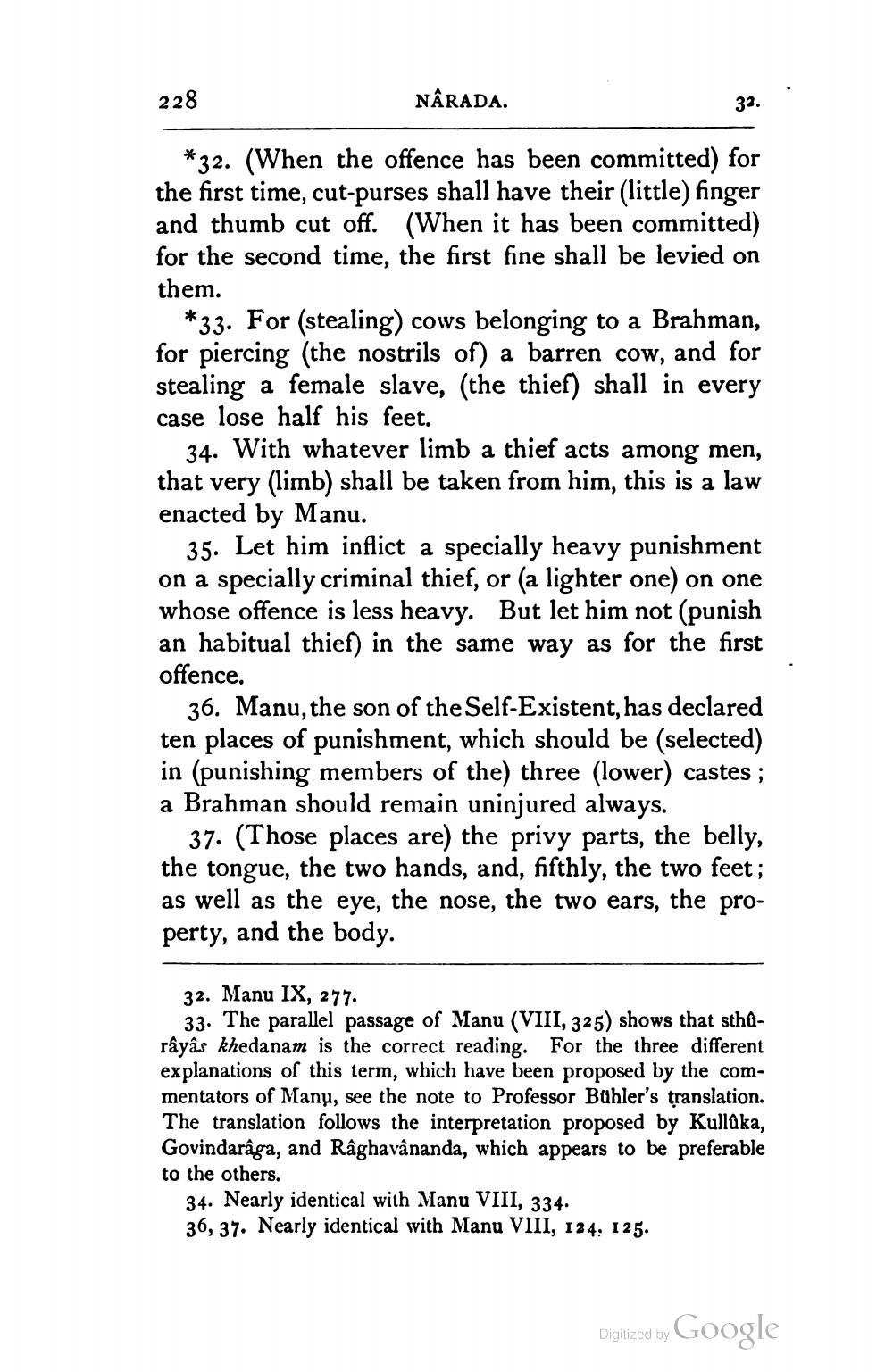________________
228
NÂRADA.
*32. (When the offence has been committed) for the first time, cut-purses shall have their (little) finger and thumb cut off. (When it has been committed) for the second time, the first fine shall be levied on them.
*33. For (stealing) cows belonging to a Brahman, for piercing (the nostrils of) a barren cow, and for stealing a female slave, (the thief) shall in every case lose half his feet.
34. With whatever limb a thief acts among men, that very limb) shall be taken from him, this is a law enacted by Manu.
35. Let him inflict a specially heavy punishment on a specially criminal thief, or (a lighter one) on one whose offence is less heavy. But let him not (punish an habitual thief) in the same way as for the first offence.
36. Manu, the son of the Self-Existent, has declared ten places of punishment, which should be (selected) in (punishing members of the) three (lower) castes ; a Brahman should remain uninjured always.
37. (Those places are) the privy parts, the belly, the tongue, the two hands, and, fifthly, the two feet; as well as the eye, the nose, the two ears, the property, and the body.
32. Manu IX, 277.
33. The parallel passage of Manu (VIII, 325) shows that sthûrâyâs khedanam is the correct reading. For the three different explanations of this term, which have been proposed by the commentators of Many, see the note to Professor Bühler's translation.
The translation follows the interpretation proposed by Kullaka, Govindarâga, and Raghavânanda, which appears to be preferable to the others.
34. Nearly identical with Manu VIII, 334. 36, 37. Nearly identical with Manu VIII, 124, 125.
Digitized by Google




